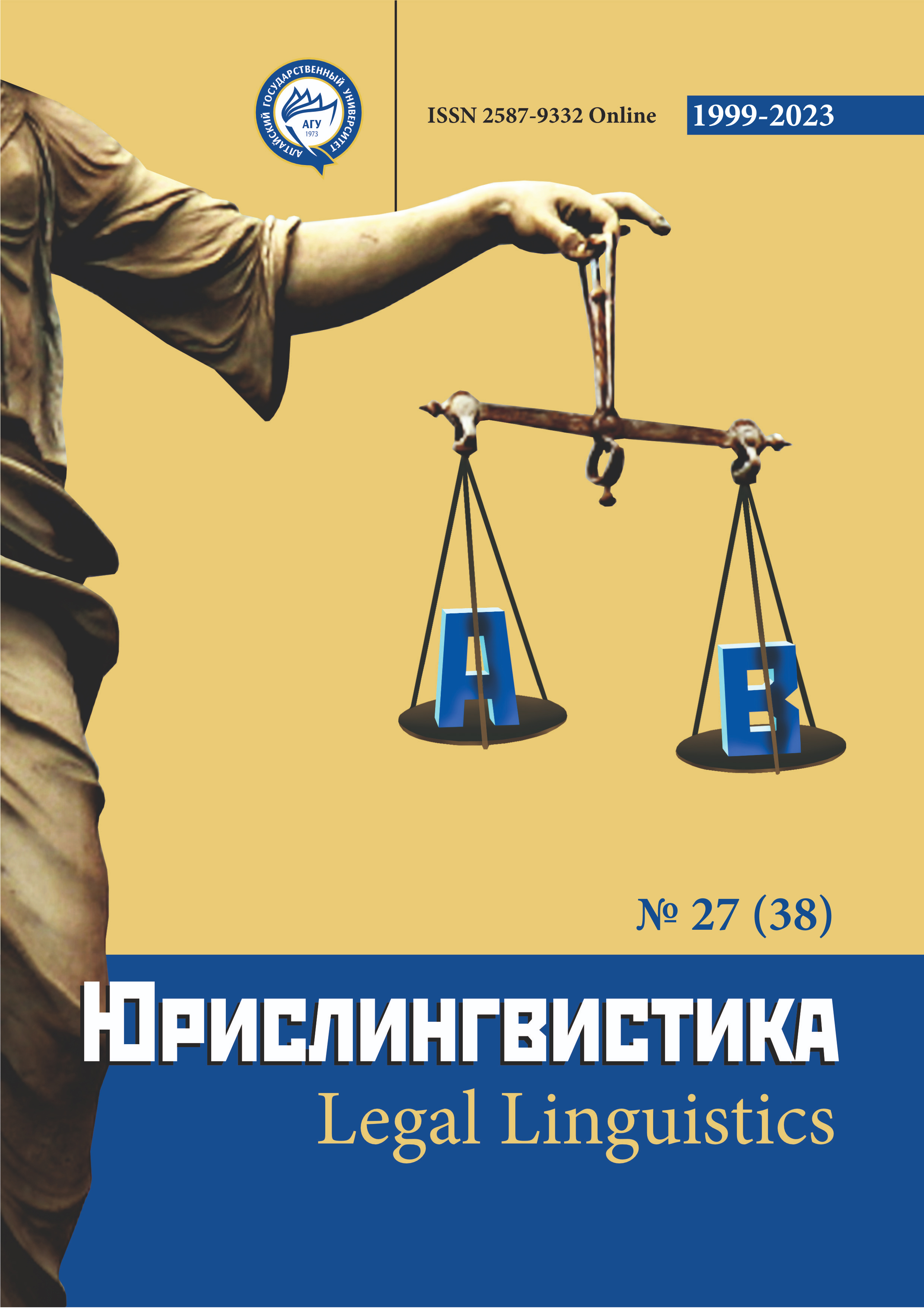Speech Сulture in the Professional Activities of a Lawyer: Methodological Techniques for Teaching Legal Writing
УДК 81-26 ББК 81.2
Abstract
The article describes the experience of teaching the course "Fundamentals of Legal Writing" to students of the training program "Jurisprudence". The teaching is based on the analysis of grammatical errors made by compilers of texts of jurisdictional genres. The undertaken functional approach to learning made it possible to establish that, depending on the type of speech generated (narration, reasoning, description), writers experience various difficulties. Thus, the learning tasks of the course are divided into three groups. The first is aimed at mastering the rules for constructing grammatical models inherent to official business speech (nominal, semi-predicative and passive constructions). The second is aimed at mastering effective ways of narrating about the circumstances of the offense. The skills being formed are focused on compiling interrogation protocols. The third group of exercises is aimed at mastering models of reasoning about the causal relationship of facts and the relationship between the event of an offense and legal norms. This skill is necessary when issuing decisions, sentences, judicial acts, etc. It is noted that the description as a type of speech is found in drawing up protocols of inspecting objects or documents and accounts for mainly speech errors associated with the selection of lexical means.
Downloads
Metrics
References
Губаева Т. В. Русский язык в судебных актах. Научно-практическое пособие. М., 2010.
Дускаева Л. Р., Протопопова О. В. Жанры официально-делового стиля / Эффективное речевое общение (базовые компетенции). Словарь-справочник. Электронное издание. Под ред. А. П. Сковородникова. Красноярск, 2014. ‒ С. 150-153.
Жеребило Т. В. Словарь лингвистических терминов. Назрань, 2010.
Ивакина Н. Н. Профессиональная речь юриста. М., 1997.
Колтунова М. В. Деловое общение: нормы, риторика, этикет. Учеб. пособие. М., 2005.
Кушнерук С. П. Документная лингвистика (русский деловой текст): учеб. пособие. Волгоград, 1999.
Леонтьева Т. В. Документная лингвистика. М., 2019.
Малышев А. А. Некоторые проблемы языка и стиля процессуальных документов / Вестник Высшего арбитражного суда Российской Федерации. – 2000. – № 6. – С. 116-122.
Маркова В. А. К вопросу о составе стилевых черт официально-делового стиля / Филология и человек. 2018 – №1. ‒ С. 62-73.
Петрова Л. И. Особенности редактирования официальной литературы / Труды БГТУ. – 2013. – №8. – С. 82-85.
Пешковский А. М. Вопросы методики родного языка, лингвистики и стилистики. М.; Л., 1930.
Прадид О. Ю. Язык закона: вопросы стилистической квалификации / Litera. – 2019. – № 2. – С. 68–77.
Рахманин Л. В. Стилистика деловой речи и редактирование служебных документов. М., 1997.
Шугрина Е. С. Техника юридического письма. М., 2000.
Язык и стиль судебных документов. СПб., 2003.
Copyright (c) 2023 Светлана Доронина

This work is licensed under a Creative Commons Attribution 4.0 International License.
The authors, which are published in this journal, agree to the following conditions:
1. Authors retain the copyright to the work and transfer to the journal the right of the first publication along with the work, at the same time licensing it under the terms of the Creative Commons Attribution License, which allows others to distribute this work with the obligatory indication of the authorship of this work and a link to the original publication in this journal .
2. The authors retain the right to enter into separate, additional contractual agreements for the non-exclusive distribution of the version of the work published by this journal (for example, to place it in the university depository or to publish it in a book), with reference to the original publication in this journal.
3. Authors are allowed to post their work on the Internet (for example, in a university repository or on their personal website) before and during the review process of this journal, as this may lead to a productive discussion, as well as more links to this published work (See The Effect of Open Access).











